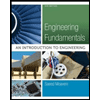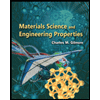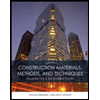At an intersection car B was traveling south and car A was traveling 30° north of east when they slammed into each other. Upon investigation it was found that after the crash the two cars got stuck and skidded off at an angle of 10° north of east. Each driver claimed that he was going at the speed limit of 50 km/h and that he tried to slow down but because the other driver was going a lot faster. Knowing that the masses of cars A and B were 1500 kg and 1200 kg, respectively, determine (a) which car was going faster? 10° couldn't avoid the crash VA 30 (b) the speed of the faster of the two cars if the slower car was traveling at the speed limit. Two disks sliding on a frictionless horizontal plane with opposite velocities of the same magnitude ve hit each other squarely. Disk A is known to have a weight of 6-lb and is observed to have zero velocity after impact. Determine (a) the weight of disk B, knowing that the coefficient of restitution between the two disks is 0.5, (b) the range of possible values of the weight of disk B if the coefficient of restitution between the two disks is В unknown. Two identical cars A and B are at rest on a loading dock with brakes released. Car c, of a slightly different style but of the same weight, has been pushed by dockworkers and hits car B with a velocity of 1.5 m/s. Knowing that the coefficient of restitution is 0.8 between B and C and 0.5 between A and B, determine the velocity of each car after all collisions have taken place. 1.5 m/s At an amusement park there are 200-kg bumper cars A, B, and C that have riders with masses of 40 kg, 60 kg, and 35 kg respectively. Car A is moving to the right with a velocity vA = 2 m/s and car C has a velocity vB = 1.5 m/s to the left, as premier University of choice JOS ASINGAN BAYAMBANG BINMALEY INFANTA LINGAYEN SAN CARLOS STA. MARIA URDANETA ATE SCHOOL OPEN UNIVERSITY SYSTEMS EXPANDED TERTIARY EDUCATION AND EQUIVALENCY PROGRAM www.psu.edu.ph STATE Republic of the Philippines Pangasinan State University Urdaneta City Campus San Vicente, Urdaneta City Telefax: (075) 632-2559 1979 but car B is initially at rest. VA The coefficient of restitution between each car is 0.8. Determine the final velocity of each car, after all impacts, assuming (a) cars A and C hit car B at the same time, (b) car A hits car B before car C does. ERSITY UNIVE SINAN S
At an intersection car B was traveling south and car A was traveling 30° north of east when they slammed into each other. Upon investigation it was found that after the crash the two cars got stuck and skidded off at an angle of 10° north of east. Each driver claimed that he was going at the speed limit of 50 km/h and that he tried to slow down but because the other driver was going a lot faster. Knowing that the masses of cars A and B were 1500 kg and 1200 kg, respectively, determine (a) which car was going faster? 10° couldn't avoid the crash VA 30 (b) the speed of the faster of the two cars if the slower car was traveling at the speed limit. Two disks sliding on a frictionless horizontal plane with opposite velocities of the same magnitude ve hit each other squarely. Disk A is known to have a weight of 6-lb and is observed to have zero velocity after impact. Determine (a) the weight of disk B, knowing that the coefficient of restitution between the two disks is 0.5, (b) the range of possible values of the weight of disk B if the coefficient of restitution between the two disks is В unknown. Two identical cars A and B are at rest on a loading dock with brakes released. Car c, of a slightly different style but of the same weight, has been pushed by dockworkers and hits car B with a velocity of 1.5 m/s. Knowing that the coefficient of restitution is 0.8 between B and C and 0.5 between A and B, determine the velocity of each car after all collisions have taken place. 1.5 m/s At an amusement park there are 200-kg bumper cars A, B, and C that have riders with masses of 40 kg, 60 kg, and 35 kg respectively. Car A is moving to the right with a velocity vA = 2 m/s and car C has a velocity vB = 1.5 m/s to the left, as premier University of choice JOS ASINGAN BAYAMBANG BINMALEY INFANTA LINGAYEN SAN CARLOS STA. MARIA URDANETA ATE SCHOOL OPEN UNIVERSITY SYSTEMS EXPANDED TERTIARY EDUCATION AND EQUIVALENCY PROGRAM www.psu.edu.ph STATE Republic of the Philippines Pangasinan State University Urdaneta City Campus San Vicente, Urdaneta City Telefax: (075) 632-2559 1979 but car B is initially at rest. VA The coefficient of restitution between each car is 0.8. Determine the final velocity of each car, after all impacts, assuming (a) cars A and C hit car B at the same time, (b) car A hits car B before car C does. ERSITY UNIVE SINAN S
Engineering Fundamentals: An Introduction to Engineering (MindTap Course List)
5th Edition
ISBN:9781305084766
Author:Saeed Moaveni
Publisher:Saeed Moaveni
Chapter6: Fundamental Dimensions And Units
Section: Chapter Questions
Problem 13P
Related questions
Question
Please help me answer the questions in dynamics of rigid bodies with solution, thank you in advance

Transcribed Image Text:At an intersection car B was traveling south and
car A was traveling 30° north of east when they
slammed into each other. Upon investigation it
was found that after the crash the two cars got
stuck and skidded off at an angle of 10° north
of east. Each driver claimed that he was going
at the speed limit of 50 km/h and that he tried
to slow down but
because the other driver was going a lot faster.
Knowing that the masses of cars A and B were
1500 kg and 1200 kg, respectively, determine
(a) which car was going faster?
10°
couldn't avoid the
crash
VA
30
(b) the speed of the faster of the two cars if the slower car was traveling at the
speed limit.
Two disks sliding on a frictionless horizontal plane with
opposite velocities of the same magnitude ve hit each other
squarely. Disk A is known to have a weight of 6-lb and is
observed to have zero velocity after impact. Determine
(a) the weight of disk B, knowing that the coefficient of
restitution between the two disks is 0.5,
(b) the range of possible values of the weight of disk B if
the coefficient of restitution between the two disks is
В
unknown.
Two identical cars A and B are at rest on a loading dock with brakes released. Car
c, of a slightly different style but of the same weight, has been pushed by dockworkers
and hits car B with a velocity of 1.5 m/s. Knowing that the coefficient of restitution
is 0.8 between B and C and 0.5 between A and B, determine the velocity of each car
after all collisions have taken place.
1.5 m/s
At an amusement park there are 200-kg bumper cars A, B, and C that have
riders with masses of 40 kg, 60 kg, and 35 kg respectively. Car A is moving to the
right with a velocity vA = 2 m/s and car C has a velocity vB = 1.5 m/s to the left,
as premier University of choice
JOS ASINGAN BAYAMBANG BINMALEY INFANTA LINGAYEN SAN CARLOS STA. MARIA URDANETA
ATE SCHOOL OPEN UNIVERSITY SYSTEMS EXPANDED TERTIARY EDUCATION AND EQUIVALENCY PROGRAM
www.psu.edu.ph
STATE
Republic of the Philippines
Pangasinan State University
Urdaneta City Campus
San Vicente, Urdaneta City
Telefax: (075) 632-2559
1979
but car B is initially at rest.
VA
The coefficient of restitution
between
each
car is
0.8.
Determine the final velocity of
each car, after all impacts,
assuming
(a) cars A and C hit car B at the same time,
(b) car A hits car B before car C does.
ERSITY
UNIVE
SINAN S

Expert Solution
This question has been solved!
Explore an expertly crafted, step-by-step solution for a thorough understanding of key concepts.
This is a popular solution!
Trending now
This is a popular solution!
Step by step
Solved in 4 steps with 5 images

Knowledge Booster
Learn more about
Need a deep-dive on the concept behind this application? Look no further. Learn more about this topic, civil-engineering and related others by exploring similar questions and additional content below.Recommended textbooks for you

Engineering Fundamentals: An Introduction to Engi…
Civil Engineering
ISBN:
9781305084766
Author:
Saeed Moaveni
Publisher:
Cengage Learning

Materials Science And Engineering Properties
Civil Engineering
ISBN:
9781111988609
Author:
Charles Gilmore
Publisher:
Cengage Learning

Construction Materials, Methods and Techniques (M…
Civil Engineering
ISBN:
9781305086272
Author:
William P. Spence, Eva Kultermann
Publisher:
Cengage Learning

Engineering Fundamentals: An Introduction to Engi…
Civil Engineering
ISBN:
9781305084766
Author:
Saeed Moaveni
Publisher:
Cengage Learning

Materials Science And Engineering Properties
Civil Engineering
ISBN:
9781111988609
Author:
Charles Gilmore
Publisher:
Cengage Learning

Construction Materials, Methods and Techniques (M…
Civil Engineering
ISBN:
9781305086272
Author:
William P. Spence, Eva Kultermann
Publisher:
Cengage Learning